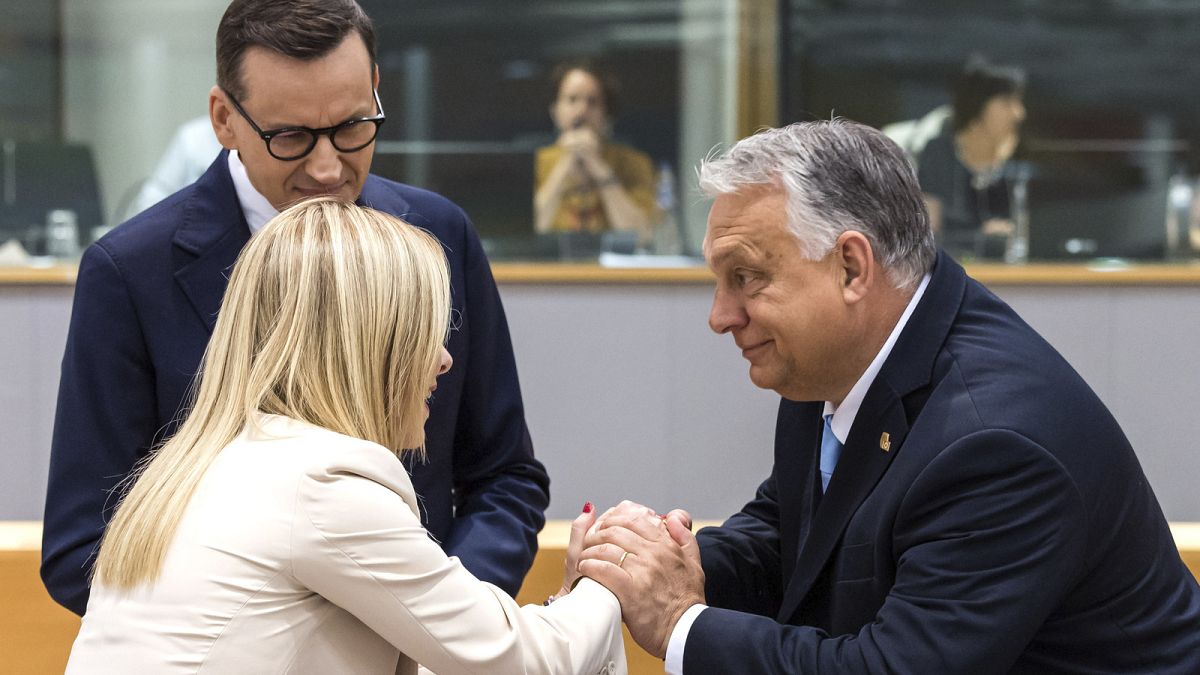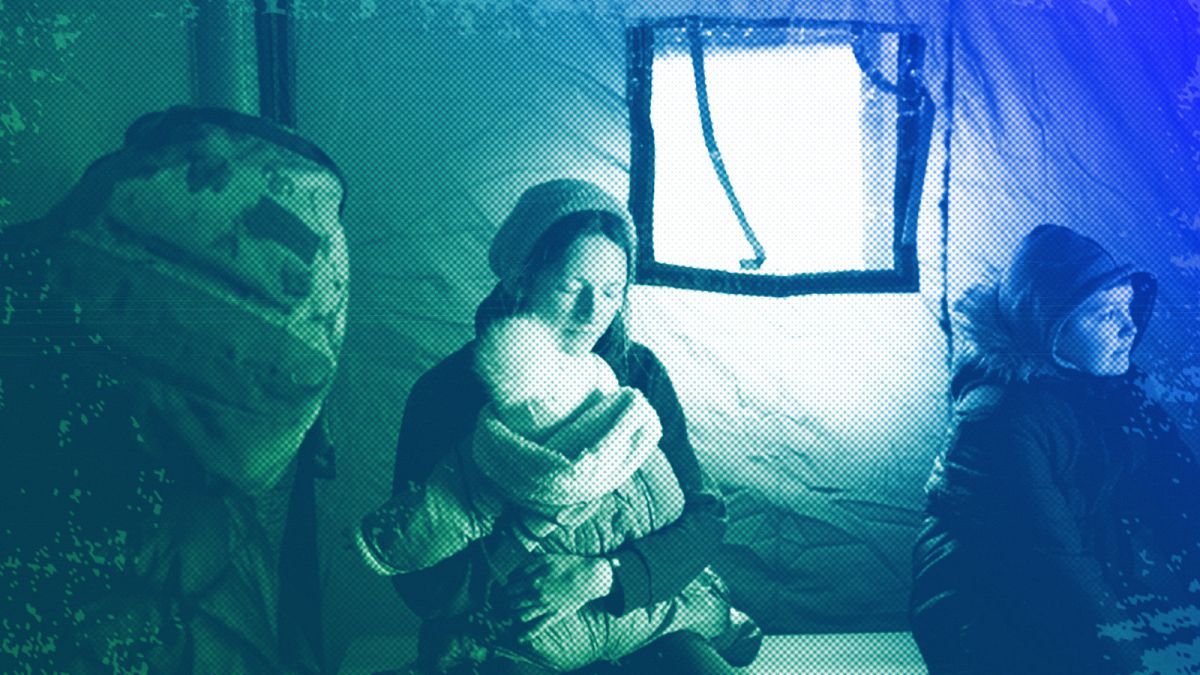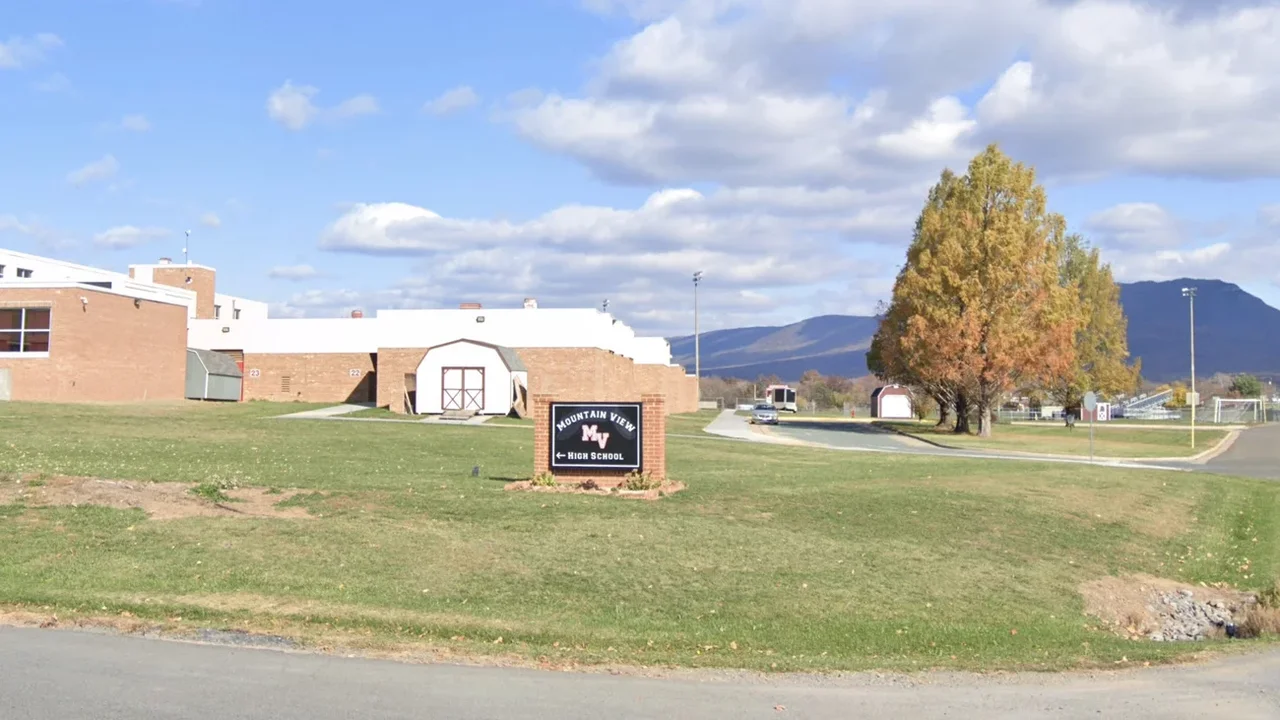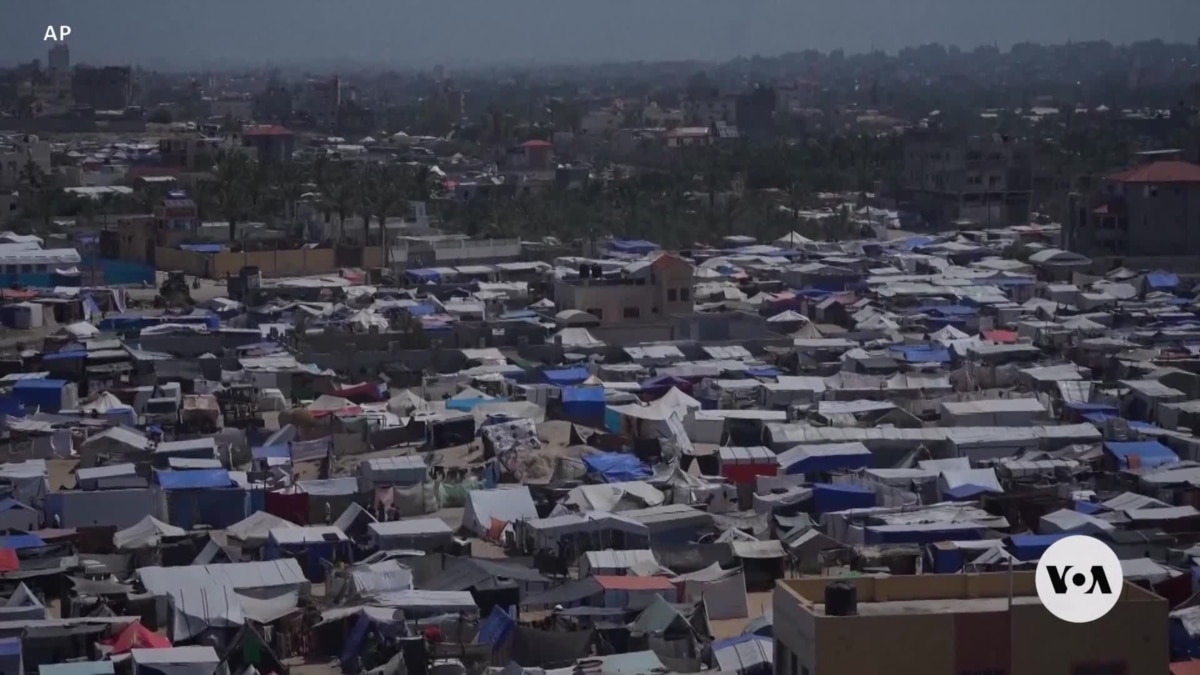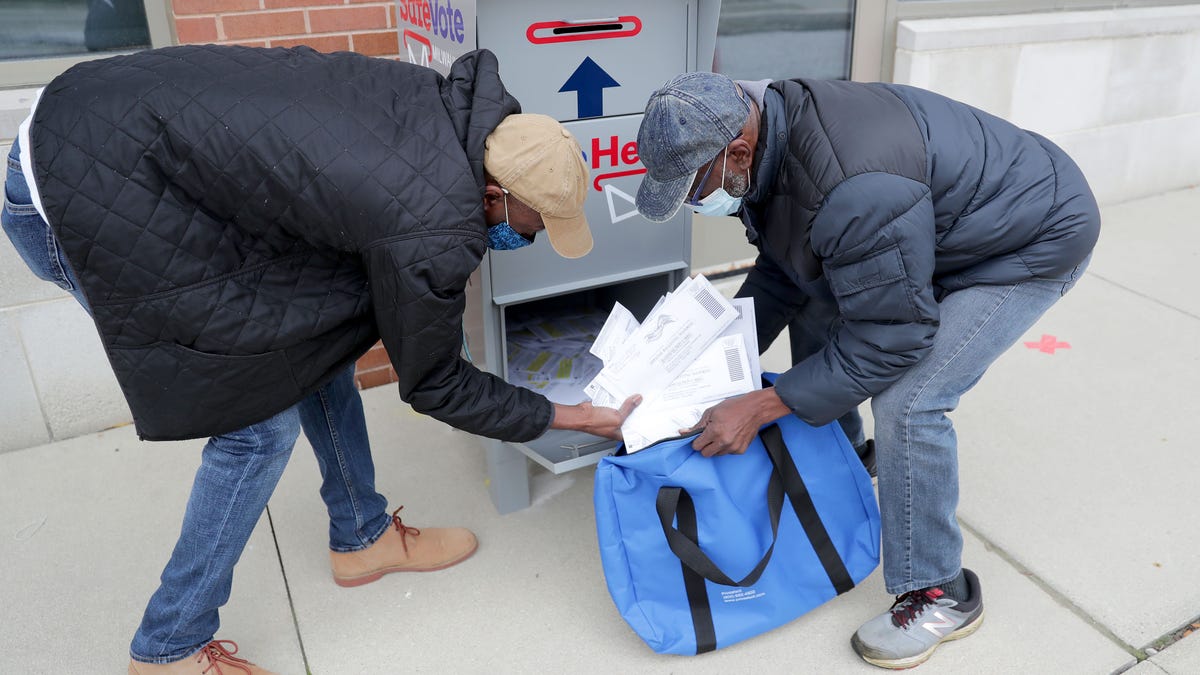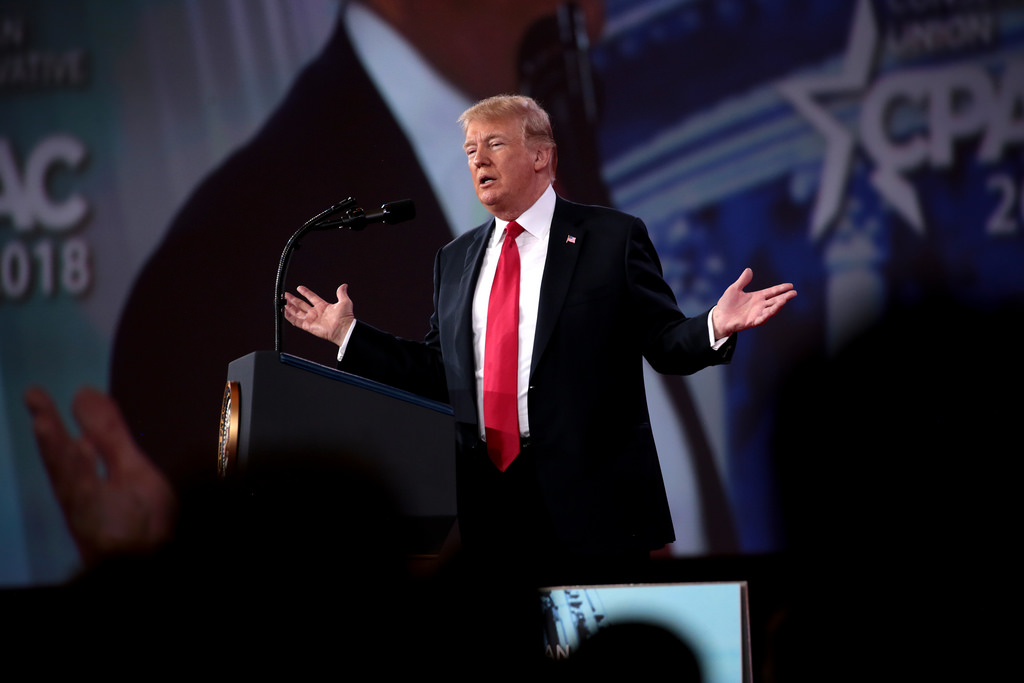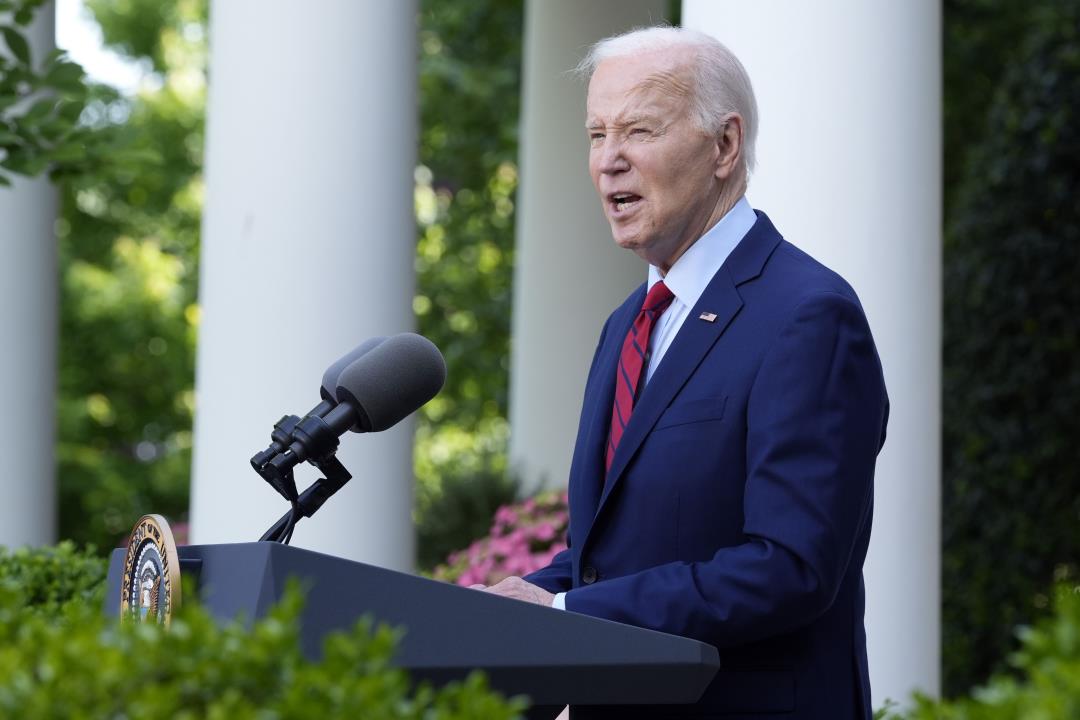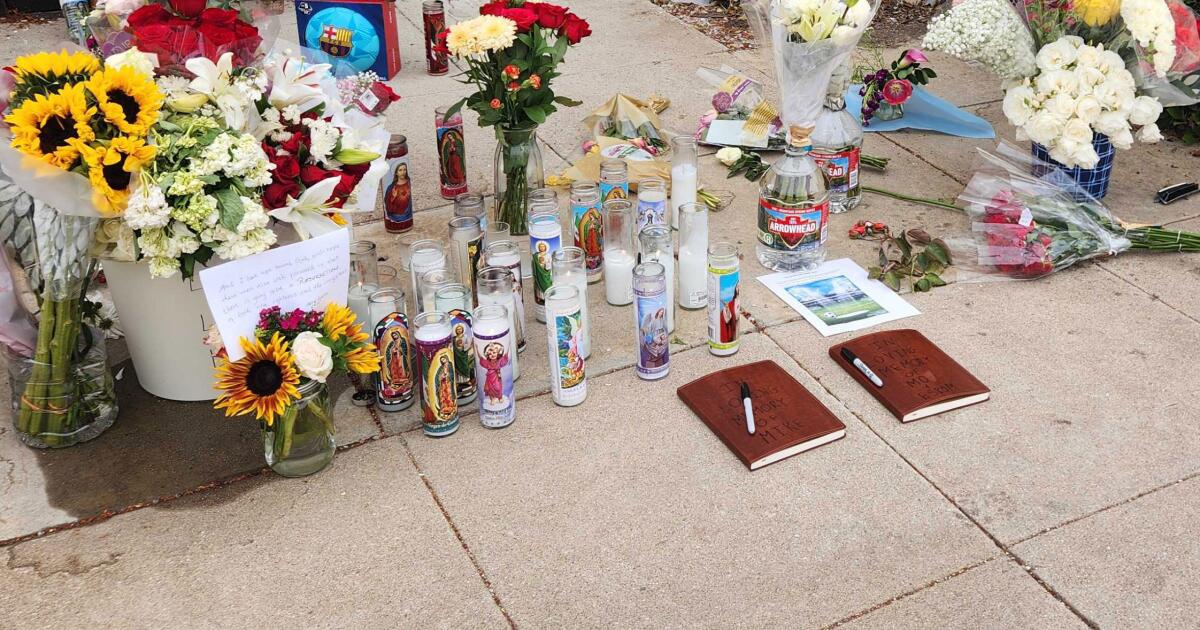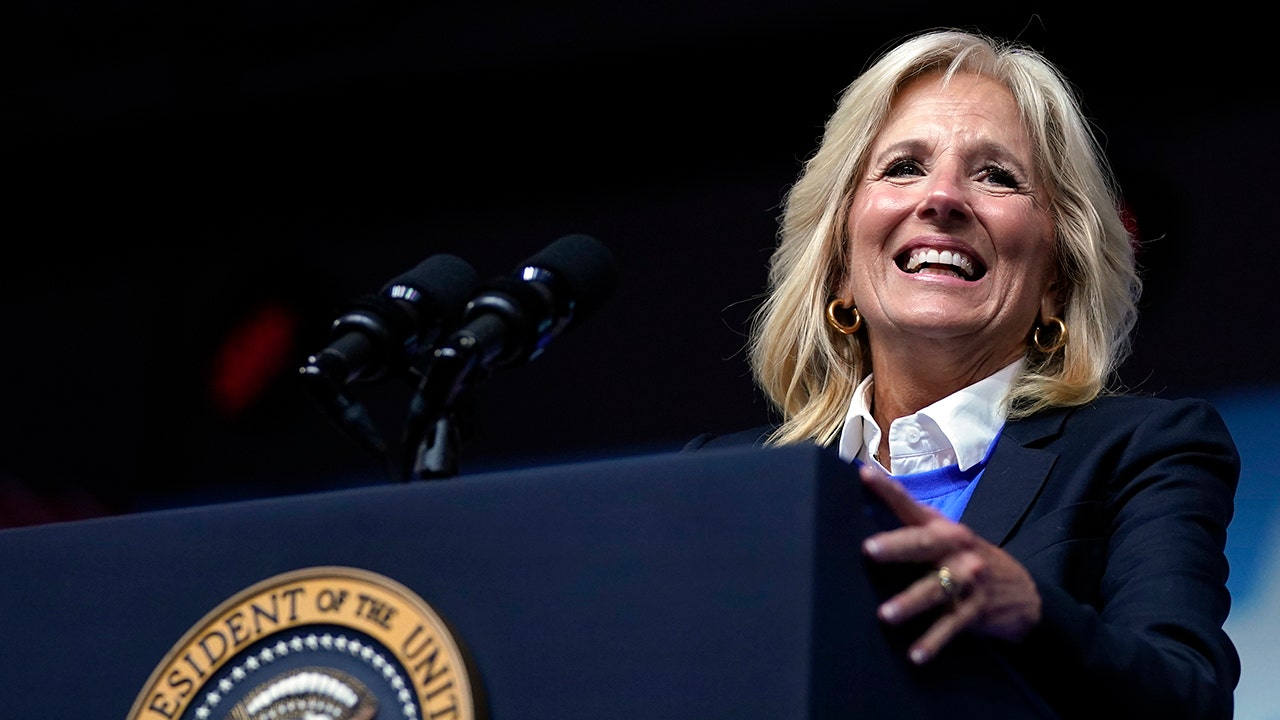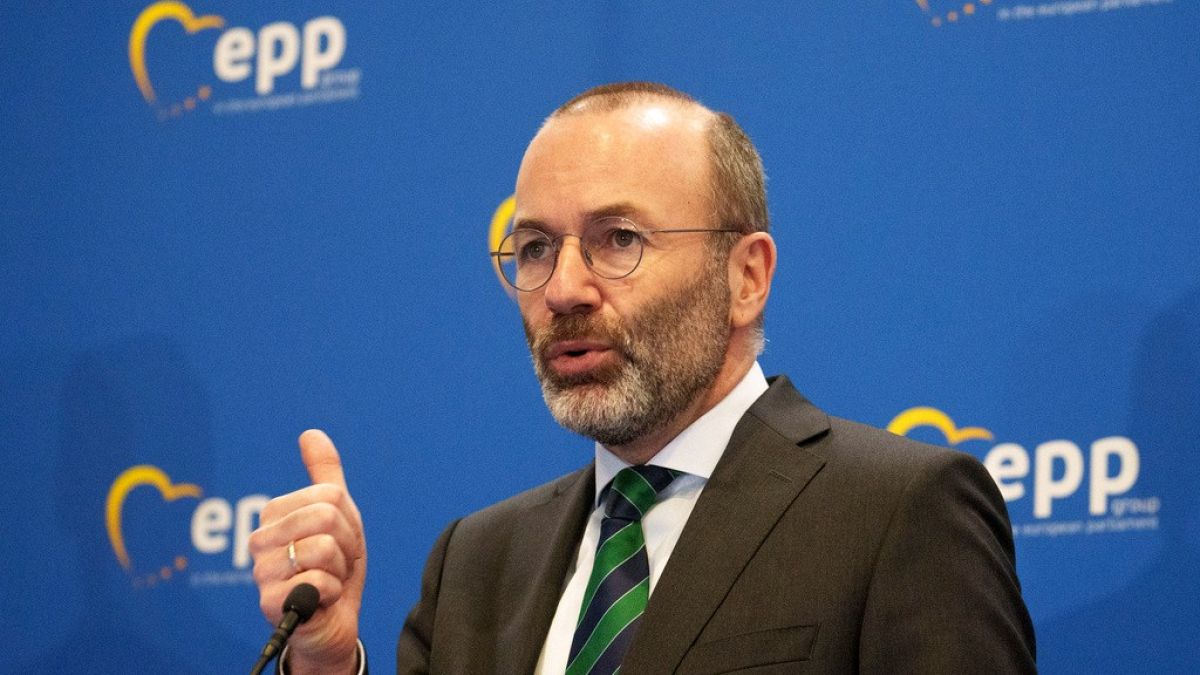World
Was von der Leyen’s EU speech a precursor to an election campaign?
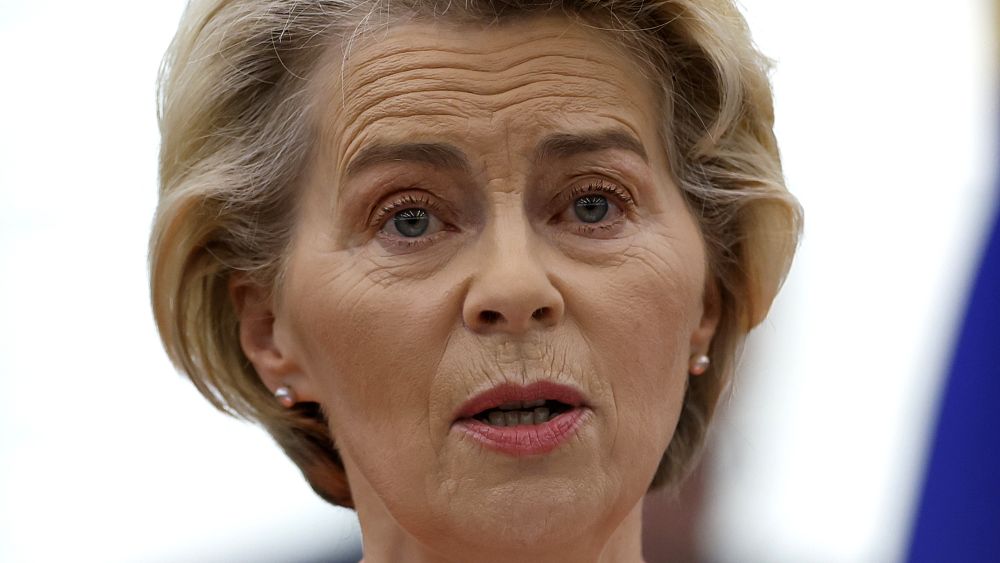
Ursula von der Leyen delivered a “reactive” as well as an “election campaign” speech this week, one expert argues.
This week saw one of the highlights of the political calendar in Europe: the annual State of the European Union address.
Modelled on the US president’s traditional address to Congress, the speech has been delivered by the Commission president before the European Parliament’s plenary chamber in Strasbourg since 2010.
But what is a prime-time TV event with huge ratings stateside is not exactly a must-watch for European viewers.
Most Europeans have never heard of the speech, let alone seen it, which might have something to do with the fact that it starts at nine in the morning.
As the text is made available to members of parliament and journalists in advance, some in the audience were following Ursula von der Leyen’s address rather casually, checking phone messages or, like the commissioner for home affairs, Ylva Johansson, knitting.
State of the EU, according to von der Leyen
Typically, the speech takes stock of the work done in the past year and identifies policy priorities for the coming months – and on Wednesday, it was, in fact, the same.
Ursula von der Leyen touched upon gender equality, migration and the economy and many other key political policy areas.
An element of surprise was provided by the odd concrete policy announcement, with von der Leyen announcing an anti-subsidy investigation into Chinese electric cars.
“Global markets are now flooded with cheaper Chinese electric cars. And their price is kept artificially low by state subsidies… So, I can announce today that the Commission is launching an anti-subsidy investigation into electric vehicles coming from China”.
Regarding Ukraine, von der Leyen urged Europeans to bring the country into a European Union of more than 30 member states, casting enlargement as an epoch-defining decision for the 27-nation bloc.
“The future of Ukraine is in our union,” she said.
And after reiterating EU support for Ukrainian refugees, she had another announcement.
“And, Honorable Members, this was Europe answering the call of history. And so, I am proud to announce that the Commission will propose to extend our temporary protection to Ukrainians in the European Union. Our support to Ukraine will endure,” she said.
Invoking the call of history was certainly justified, as it was von der Leyen’s last State of the European Union address – or was it?
European elections looming
She certainly left people in the dark on whether she plans to run for another five-year term next year.
Is she ready to campaign? Does she want to retire? Or is she eyeing up other options?
Euronews talked to Jacob Kirkegaard, senior fellow at the German Marshall Fund and the Peterson Institute for International Economics, to see whether he could shed some light on the situation.
In general, Kirkegaard considers the speech a reactive, rather than a proactive one.
“It was really a speech focused on continuing to implement the Green Deal, digitalisation, the Ukrainian EU accession process, etc., but then also dealing with the consequences of the decisions taken in her last term,” he told Euronews.
And even though von der Leyen did not at any time mention the next European elections and her possible candidature for a second term. Kirkegaard is pretty confident that she will stand.
“It was very difficult for me to not look at this speech and also view it, quite frankly, as an electioneering speech,” he said.
“It was part of her election campaign. She promised to clearly a number of member states to look after them and protect them against the consequences of the Green Deal, China rising, challenges for the European agricultural sector. So, I don’t think she had to spell it out to make it explicit that she’s running. I certainly believe she is”.
Catalan march in Barcelona
One problem that Ursula von der Leyen did not have to deal with as Commission president was Catalan independence and a break-up of Spain – at least so far.
This week, tens of thousands of people marched through Barcelona to mark “La Diada”, also known as Catalan National Day.
Six years after a failed attempt, they demanded independence again.
The march came as Madrid remains in political limbo following an inconclusive national election with Catalan separatist parties holding crucial seats that could help Prime Minister Pedro Sanchez remain in power – or not.
In a nod to separatists, Sanchez is now pushing for Catalan to be added to the EU’s official languages – something that has already ruffled some feathers in Brussels.
Whether this gesture will lead to more concessions remains to be seen.
But one thing is certain: Catalan independence continues to haunt Spanish politics.

World
9-1-1 Crew Member Dies in Car Crash After Working 14-Hour Shift

ad
World
4 Dominicans are accused of smuggling wildlife and throwing 113 birds overboard to their deaths
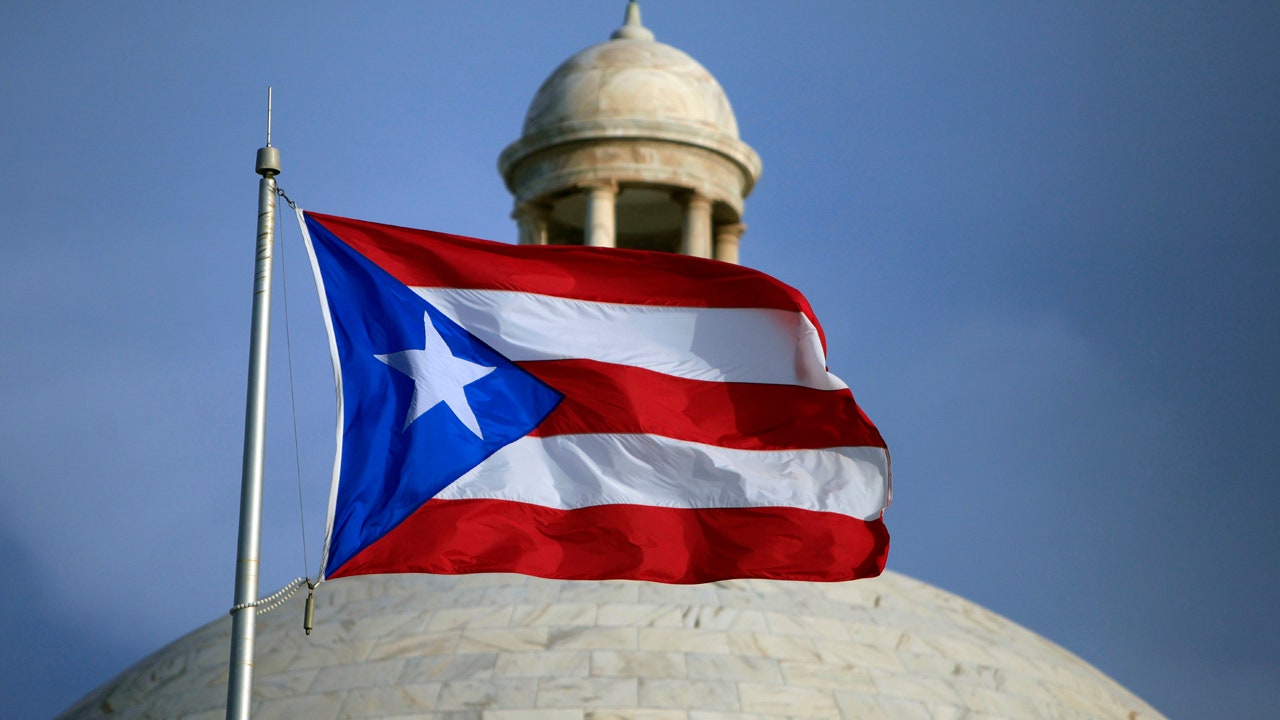
Four men from the Dominican Republic were indicted in Puerto Rico on charges of smuggling wildlife in a case involving more than 100 dead birds, officials said Monday.
DOMINICAN REPUBLIC GETS FUNDING TO SAVE RARE BIRD
The men were detained after the U.S. Coast Guard spotted them earlier this month aboard a flagless boat north of Puerto Rico and saw them throw overboard wooden cages holding tropical birds as authorities approached, the U.S. Attorney’s Office said.
Officials say four men have been indicted in Puerto Rico on charges of smuggling wildlife in a case involving more than 100 dead birds. (AP Photo/Ricardo Arduengo)
Some 113 birds were retrieved from the ocean, officials said, adding that the men had traveled to the U.S. territory to smuggle back exotic birds to the neighboring Dominican Republic.
The suspects appeared in court Monday. A judge ordered three of them held in prison and a fourth under house arrest pending an upcoming trial.
World
Lawrence Wong set to take centre stage as Singapore’s new prime minister

Singapore – For the first time in 20 years, Singapore will inaugurate a new prime minister, Minister for Finance and Deputy Prime Minister Lawrence Wong, who will take the reins of power in a ceremony on Wednesday, May 15.
The 51-year-old will replace Lee Hsien Loong – the eldest son of the country’s first Prime Minister Lee Kuan Yew – who has been in the job since August 2004.
Wong is only the fourth leader in Singapore’s 59-year history as an independent nation. Like his predecessors, he is a member of the People’s Action Party (PAP), co-founded by the elder Lee and the only ruling party Singaporeans have ever known.
The stage is now set for a general election in the city-state of 6 million people, which observers say could be held as early as this year, although the term of the current government does not expire until 2025.
At the last election in 2020, the PAP secured more than 61 percent of the vote, losing just 10 seats in the 98-member parliament to the opposition, but this was considered a sub-par performance given the opposition had won only six seats in the previous parliament.
The stakes are higher now, and a new leader is traditionally expected to gain a strong mandate from voters. Wong will be tasked with maintaining the dominance of the PAP in the face of an increasingly demanding electorate who want a greater say in governance and eschew the knuckleduster tactics and paternalistic politics of previous governments.
They are also tiring of the rat race, which Wong himself has acknowledged.
Among the most pressing issues on his plate: tackling the rising cost of living, an ageing population, a slowing economy and immigration. The PAP has also been rocked by a rare corruption scandal.
In addition, Wong must navigate the ever-present China-United States rivalry as the tiny island is a key ally to both superpowers.
Who is Lawrence Wong?
The mild-mannered Wong was selected by his peers among the “4G”, or fourth generation of leaders in Singapore’s political jargon, to be a successor to 72-year-old Lee in April 2022.
Something of a compromise candidate, he was not their first choice.
That was former central bank chief and Minister for Education Heng Swee Keat, 63, who had been appointed to succeed Lee in 2018. In a country renowned for its political stability, Heng sparked a mini political crisis by stepping aside two and a half years later, citing his age and admitting that he had not felt up to the task from the start.
Unlike many of his PAP peers, Wong did not come from the island’s establishment or attend its top schools. Going to university in the US on a government scholarship, he started out as an economist in the trade and industry ministry before entering politics in 2011.
After stints as a minister in less glamorous portfolios such as national development, he was not considered a potential prime minister, but the COVID-19 pandemic changed everything.
As co-leader of the country’s COVID-19 task force, Wong emerged as the public face of the government’s pandemic response, adroitly fielding questions from foreign media outlets in televised news conferences. Such events are a rarity in a country that performs dismally in the annual World Press Freedom rankings – Singapore was ranked 126th out of 180 countries and territories this year.

“Mr Wong is seen as a technocrat, [who is] friendly and approachable. He delivered well for the COVID-19 crisis, so he can be viewed as competent,” said former PAP lawmaker Inderjit Singh, who served alongside Lee in his central Ang Mo Kio ward for two decades.
Noting that Wong was only chosen two years ago after a period of political uncertainty, he added: “Anyone in his position will have his work cut out to show that he is indeed the right leader. He has a big task to quickly show that he is indeed the right person who can deliver.”
Leadership succession
Historically, leadership succession in Singapore has been a well-oiled process, with the heir apparent announced well in advance and groomed for years. This has been facilitated by a sterling record of governance, the PAP’s longstanding parliamentary supermajority – at its peak, there were no opposition lawmakers – and its dominance of key institutions.
Heng’s sudden departure was therefore unprecedented. Wong will also have the shortest runway of all – he became Lee’s deputy just two months after being anointed his successor. By comparison, the younger Lee served as deputy prime minister for 14 years before taking over the top job.
This perhaps explains Minister of Law and Minister for Home Affairs K Shanmugam’s prickly response to what he termed a “sneering” commentary in The Economist last month, which labelled Wong a compromise candidate and the Singapore media “docile”. Weeks later, the United Kingdom weekly conducted a wide-ranging interview with Wong where he stressed that as prime minister, he would not shy away from making unpopular decisions.
“Wong comes across as being very personable. He doesn’t portray the image of a hardliner,” said former newspaper editor PN Balji, who interacted extensively with Wong’s predecessors. While he is optimistic that Wong will come to prove himself, he added: “If you look at the leadership from Lee Kuan Yew till now, the quality of leadership has declined somewhat.”

Perhaps this is why Lee Hsien Loong is not going away – he will remain in the cabinet with the title of senior minister, just as his predecessors did.
“Given the short runway, I think Wong will benefit from [Lee’s] presence, especially in helping keep [good] external relations,” said Singh.
What do Singaporeans think of him?
Despite his increased profile during the pandemic, the guitar-playing, dog-loving, social media-friendly Wong remains something of an unknown quantity to Singaporeans.
According to a recent YouGov poll, just more than half of respondents considered him competent, with less than a third agreeing that he was a strong leader. Some 40 percent said he seemed trustworthy, a number that was significantly higher among Gen Z respondents. A fifth felt hopeful about Wong’s appointment, while 36 percent stated indifference.
Many also indicated high expectations for the incoming prime minister, perhaps reflecting the fact that Singapore’s government leaders are the world’s highest-paid, with the prime minister taking home 2.2 million Singapore dollars ($1.6m) a year including bonuses.
“Wong’s biggest challenge in the short term will be to articulate an easy-to-understand, inclusive, and progressive political vision that will draw widespread support for his government in the upcoming elections,” Elvin Ong, an assistant professor at the National University of Singapore’s political science department, told Al Jazeera.
Wong, who has stressed that he did not seek out the role or expect to become leader, is certainly working hard to win over the electorate. “Every ounce of my energy shall be devoted to the service of our country and our people,” he said in a post to his 200,000-odd Instagram followers after the handover date was announced. “Your dreams will inspire my actions.”
Calling Singapore the “improbable, unlikely nation”, he told The Economist: “My mission is to keep this miracle going for as long as I can.”
-

 Politics1 week ago
Politics1 week agoAustralian lawmakers send letter urging Biden to drop case against Julian Assange on World Press Freedom Day
-

 World1 week ago
World1 week agoBrussels, my love? Champage cracked open to celebrate the Big Bang
-
News1 week ago
A group of Republicans has united to defend the legitimacy of US elections and those who run them
-

 Politics1 week ago
Politics1 week agoHouse Dems seeking re-election seemingly reverse course, call on Biden to 'bring order to the southern border'
-

 World1 week ago
World1 week ago‘It’s going to be worse’: Brazil braces for more pain amid record flooding
-

 Politics1 week ago
Politics1 week ago'Stop the invasion': Migrant flights in battleground state ignite bipartisan backlash from lawmakers
-

 World1 week ago
World1 week agoGerman socialist candidate attacked before EU elections
-

 World1 week ago
World1 week agoSpain and Argentina trade jibes in row before visit by President Milei
